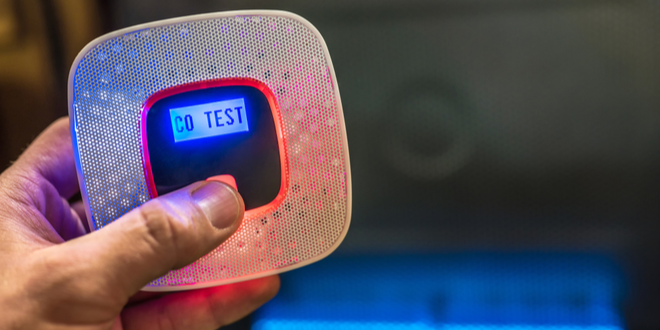As winter temperatures start to drop, some families, struggling to pay their heating bills, will turn on the kitchen stove burners and the oven in an effort to take the chill off of their home.
You can’t see or smell carbon monoxide, but at high levels it can kill a person in minutes. Carbon monoxide (CO) is produced whenever any fuel such as gas, oil, kerosene, wood, or charcoal is burned.
Hundreds of people die accidentally every year from CO poisoning caused by malfunctioning or improperly used fuel-burning appliances. Even more die from CO produced by idling cars. Fetuses, infants, elderly people, and people with anemia or with a history of heart or respiratory disease can be especially susceptible.
Carbon monoxide enters the body through breathing. CO poisoning can be confused with flu symptoms, food poisoning and other illnesses. Some symptoms include shortness of breath, nausea, dizziness, light-headedness, or headaches.
Play it Safe – If you experience symptoms that you think could be from CO poisoning:
- CALL 911
- GET FRESH AIR IMMEDIATELY. Open doors and windows, turn off combustion appliances and leave the house.
- DO NOT re-enter the premises until cleared by emergency personnel.
- If CO poisoning has occurred, it can often be diagnosed by a blood test done soon after exposure
SBCoFire recommends that families install CO alarms inside their homes to provide early warning of accumulating CO. Families should also have heating equipment inspected by a professional every year before cold weather sets in. SBCoFire and the NFPA offer the following advice on CO alarm use:
- CO alarms are not substitutes for smoke alarms. Know the difference between the sound of smoke alarms and CO alarms.
- Test CO alarms at least once a month
- If your CO alarm sounds, immediately move to a fresh air location, and call for help. Remain at the fresh air location until emergency personnel arrive.
- If the audible trouble signal sounds, check for low batteries or other trouble indicators
SBCoFire wants everyone to be warm and safe this winter. Make sure your home has carbon monoxide alarms, and seek assistance, if needed, to ensure proper home heating.
 San Bernardino News Daily Local news for San Bernardino, about San Bernardino.
San Bernardino News Daily Local news for San Bernardino, about San Bernardino.

